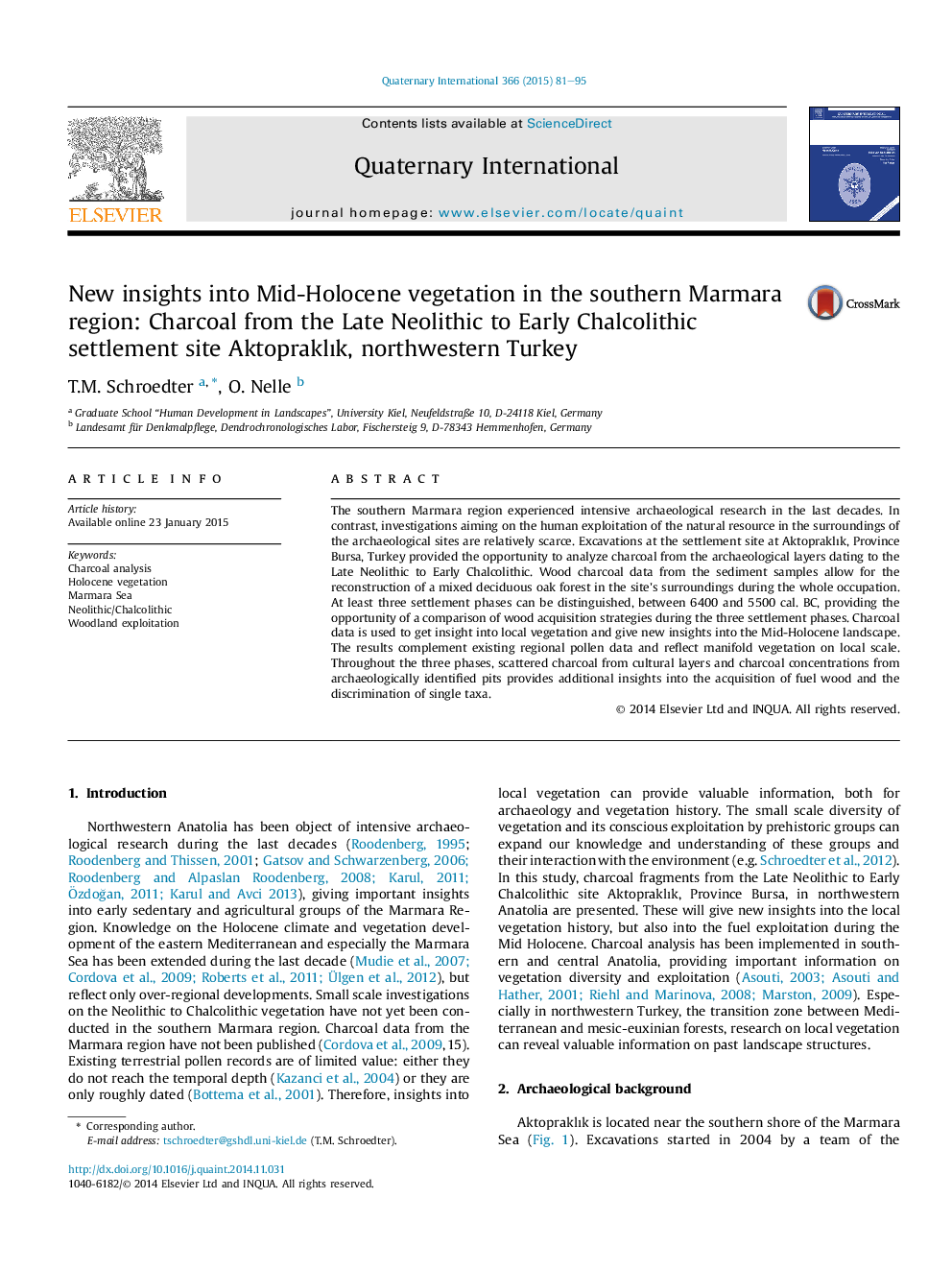| کد مقاله | کد نشریه | سال انتشار | مقاله انگلیسی | نسخه تمام متن |
|---|---|---|---|---|
| 1040826 | 1484131 | 2015 | 15 صفحه PDF | دانلود رایگان |

The southern Marmara region experienced intensive archaeological research in the last decades. In contrast, investigations aiming on the human exploitation of the natural resource in the surroundings of the archaeological sites are relatively scarce. Excavations at the settlement site at Aktopraklık, Province Bursa, Turkey provided the opportunity to analyze charcoal from the archaeological layers dating to the Late Neolithic to Early Chalcolithic. Wood charcoal data from the sediment samples allow for the reconstruction of a mixed deciduous oak forest in the site's surroundings during the whole occupation. At least three settlement phases can be distinguished, between 6400 and 5500 cal. BC, providing the opportunity of a comparison of wood acquisition strategies during the three settlement phases. Charcoal data is used to get insight into local vegetation and give new insights into the Mid-Holocene landscape. The results complement existing regional pollen data and reflect manifold vegetation on local scale. Throughout the three phases, scattered charcoal from cultural layers and charcoal concentrations from archaeologically identified pits provides additional insights into the acquisition of fuel wood and the discrimination of single taxa.
Journal: Quaternary International - Volume 366, 24 April 2015, Pages 81–95